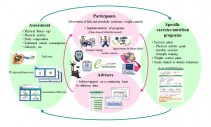キーワード: 歩行、健康、生活習慣病、地域活性化
http://www.taiiku.tsukuba.ac.jp/~kuno
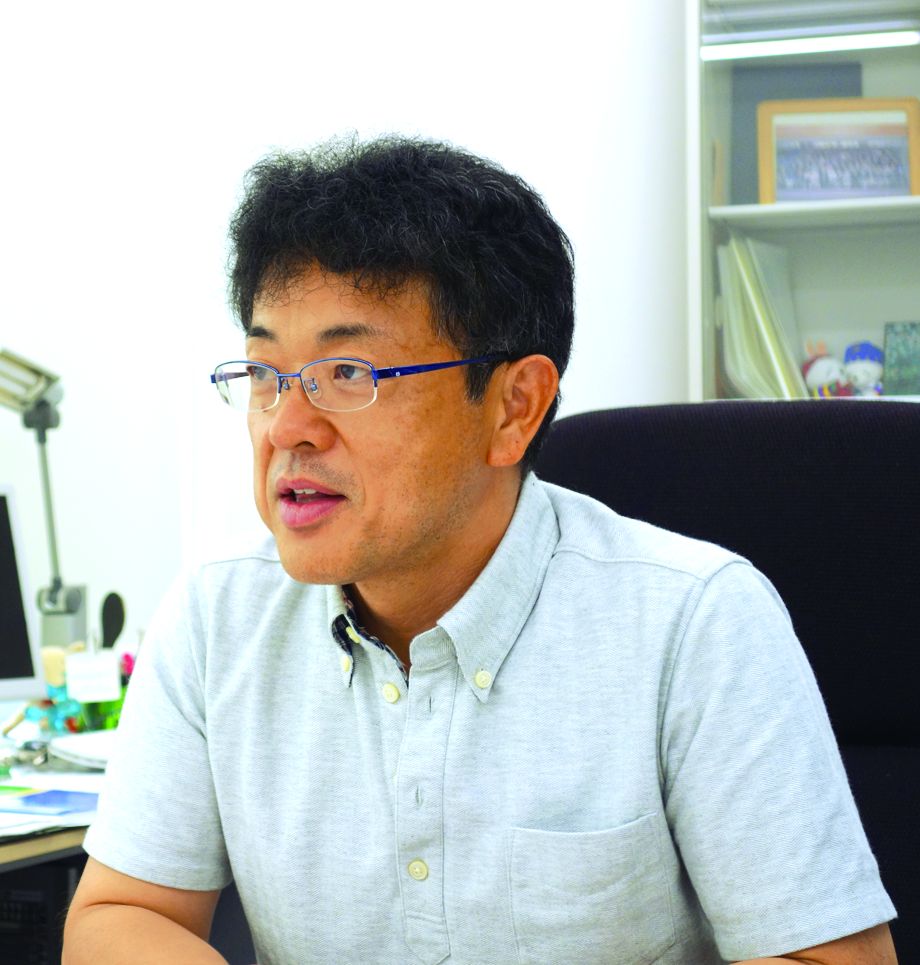 未だかつてない高齢化社会に突入する日本において、医療技術の進歩等に より、寿命は延びたとしても、健康かつ幸せに生きるという期間は逆に短くなるのではないかという懸念があります。それが現実になると地域社会の活力低下と 医療費及び社会保障費の増加は避けられません。そこで自律的に「歩く」事を基本とする「健幸」なまち「スマート・ウェルネス・シティ」を構築することによ り、健康づくりの無関心層を含む住民の行動の変化を促し、地域社会の活力低下を防ぎ、地域活性化に貢献することを目標とするリサーチユニットがあります。 それが「健幸長寿社会を創造するスマート・ウェルネス・シティの構築」です。
未だかつてない高齢化社会に突入する日本において、医療技術の進歩等に より、寿命は延びたとしても、健康かつ幸せに生きるという期間は逆に短くなるのではないかという懸念があります。それが現実になると地域社会の活力低下と 医療費及び社会保障費の増加は避けられません。そこで自律的に「歩く」事を基本とする「健幸」なまち「スマート・ウェルネス・シティ」を構築することによ り、健康づくりの無関心層を含む住民の行動の変化を促し、地域社会の活力低下を防ぎ、地域活性化に貢献することを目標とするリサーチユニットがあります。 それが「健幸長寿社会を創造するスマート・ウェルネス・シティの構築」です。
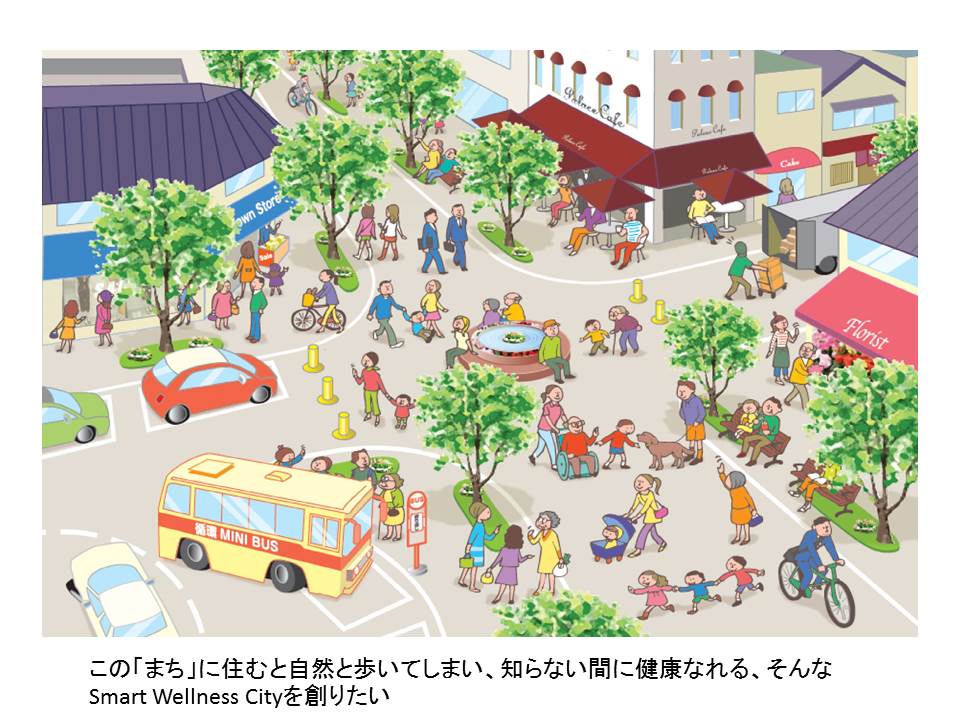
自然に歩いてしまう「まち」を創造
地域に対して信頼がある者や社会活動に参加する者はそうでない者より、身体活動量が多いと言われています(図1)。高齢化社会の中で地域の「健幸寿命」を 伸ばすために、本リサーチユニットでは、地域の中で健康に無関心な層に対して、「運動する」という新たな心理的ハードルを課すことなく、住んでいるだけで 自然に、楽しく「歩いてしまう(歩かされてしまう)、歩き続けてしまう」まち(絵1)を創造することで、地域住民全体の日常の身体活動量を増加させます。 そのために「まち」のあり方を見直し、徒歩、自動車、公共交通の適切な役割分担を実現し、「歩く」ことを基本とした「自律的な」生活へ誘導をすることで、 地域住民が肉体的・心理的な「健幸」を維持できる社会を構築します。
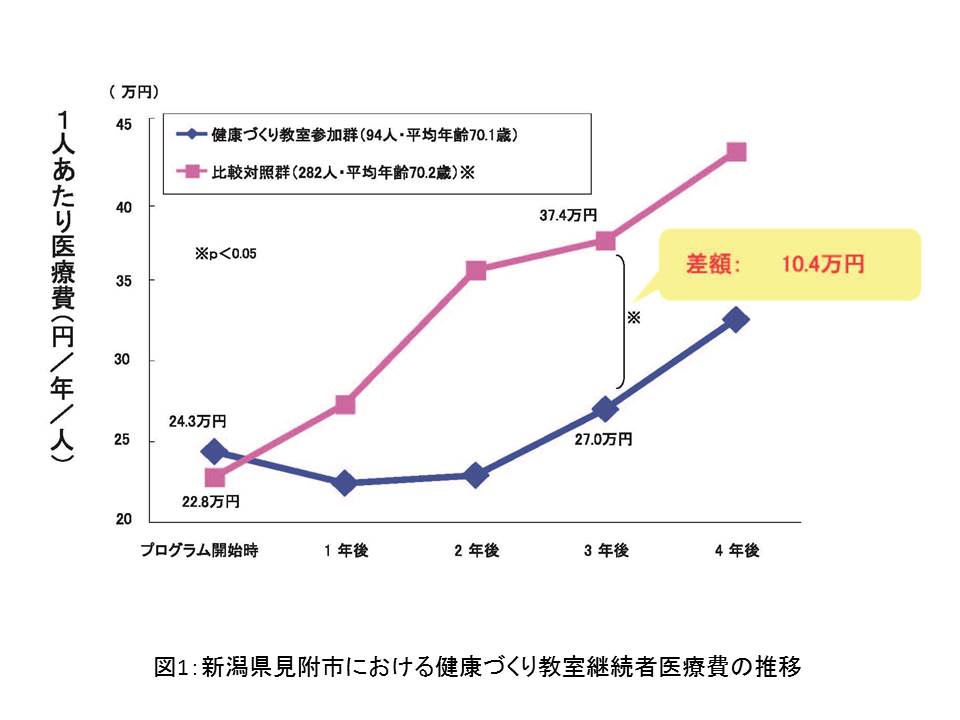
世界初の健康と街づくりの指標
地域の健康を総合的に管理するシステムの必要性が叫ばれ、健康づくりに関する政策の立案、評価に容易に利活用可能な、科学的証拠に基づく客観的な指標とな る「健幸都市インデックス」の開発・創出を目指しています。それは、医療費、介護給付費等の中長期的な結果に比べて、自治体が実施する健康関連政策の結果 を短期的に反映する性質を持たせ、かつ、医療費、介護給付費等とも直接的に相関するように設計します。また、さらにその地域の人々に対し、個別運動・栄養 プログラム提供・管理システム(e-wellnessシステム)を構築し、エビデンスに基づいた健康づくりプログラムを提供しています(図2)。
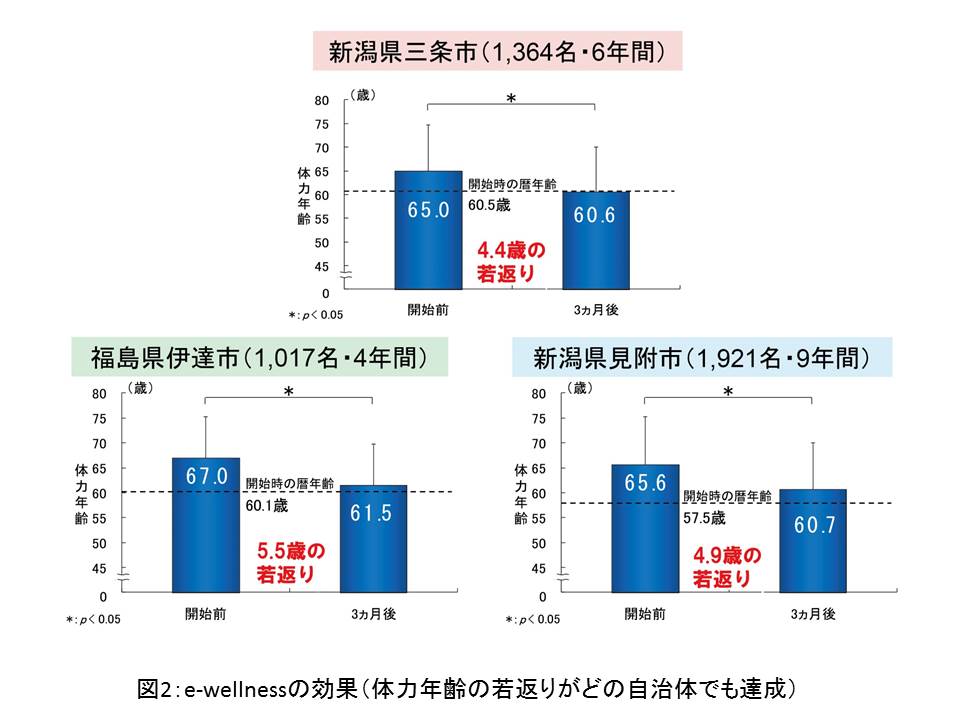
社会への貢献・実績
● Smart Wellness City 首長研究会の開催
● 自治体共用型健康クラウド整備
● まちづくり施策の評価分析アルゴリズムの検討
● e-wellnessシステムの提供(図3)
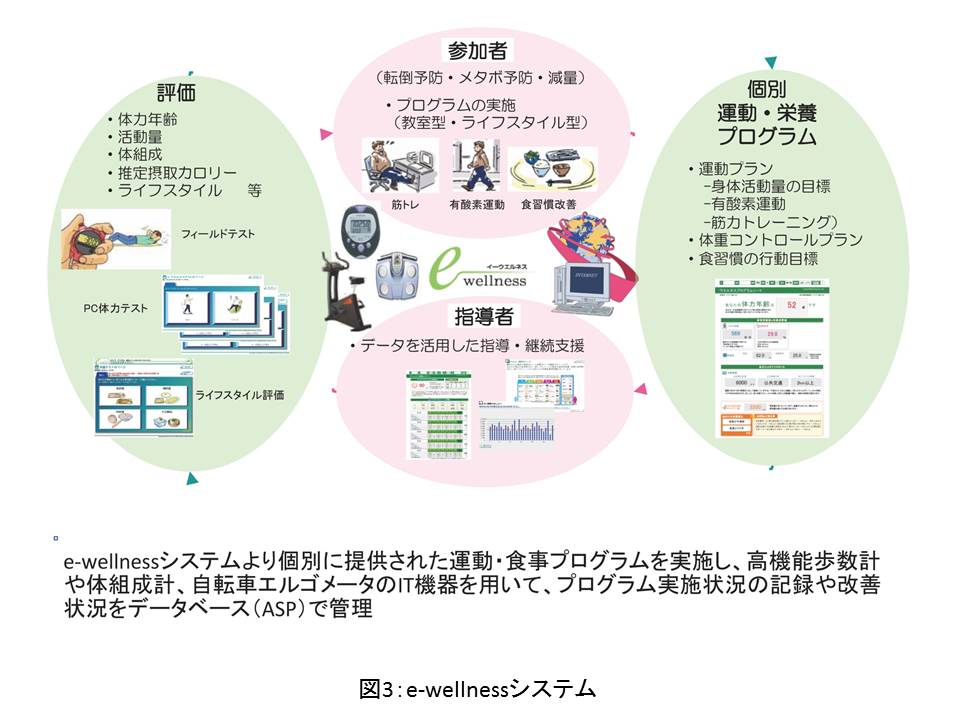
(取材:平成25年7月23日)
To Create a Society for Health and “Well-being” : Create the Smart Wellness City for Realizing Healthy and Longevity Society
Unit members : 横山 典子 Taniguchi Ayako 田辺 解
Key words:cwalking, health, lifestyle-related diseases, local revitalization

As the aging of Japanese society proceeds at an unprecedented rate, there has been concern that even if progress in medical technologies increases longevity, the period in which they will be able to live happily while staying in good health may become shorter. If this occurs, local communities will become inactive and there will be increases in health care and social security expenditures. The research unit aims to establish “Smart Wellness Cities” for “health and welfare”, in which autonomous “walking” is recommended, to encourage community residents, including those who are not interested in health promotion, to change their behaviors, help local communities continue to be vibrant, and contribute to their revitalization. The unit is referred to as “Create the Smart Wellness City for Realizing Healthy and Longevity Society”.
People take pleasure in walking around this city
It is believed that physical activity levels of people who trust in the community and participate in social activities tend to be higher. To expand the “healthy life expectancy” of community residents in Japan – an aging society, the research unit aims to increase the physical activity of all residents in daily life by developing cities in which community residents who are not interested in health promotion take pleasure in walking naturally as part of daily activities and without feeling pressured to “exercise” (Illustration 1). To develop a society in which the physical and psychological health and welfare of community people are maintained, the research unit reviews existing “cities and towns”, accurately defines roles played by walking, automobiles, and public transportation, and encourage residents to lead a “self-sustaining” life based on “walking”.
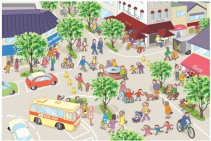
(Illustration 1) Creation of Smart
Wellness City in which all residents
naturally develop the habit of
walking and improve their health
The world’s first indices of health and city development
In response to the necessity of establishing systems for the comprehensive management of community health, the research unit develops and creates “Indices of Cities for Health and Welfare”, evidence-based objective indices, which can be easily used to develop and assess policies related to health promotion. Whereas the effects of medical and nursing care benefits are evaluated based on mid- and long-term perspectives, the indices are designed to reflect the short-term outcomes of health-related policies implemented by municipalities, and directly correlated with the above-mentioned expenditures. The research unit also develops the system for the provision and management of specific exercise/nutrition programs (e-wellness system) for community residents, and provides evidence-based health-promoting programs (Figures 1 & 2).
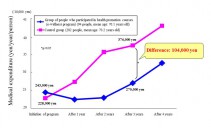
Figure 1: Changes in medical
expenditure for people living in
Mitsuke City, Niigata Prefecture,
who attended health promotion
courses (e-wellness program) on a
continuing basis
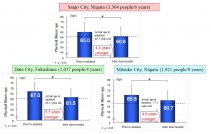
Figure 2: Effects of e-wellness
(Improvement in physical fitness
age in all municipalities)
Social contributions and achievements
● Organization of Smart Wellness City workshops for chiefs
● Development of the health cloud to be shared by municipalities
● Development of algorithms for the evaluation and analysis of urban development measures
● Provision of the e-wellness system (Figure 3)
